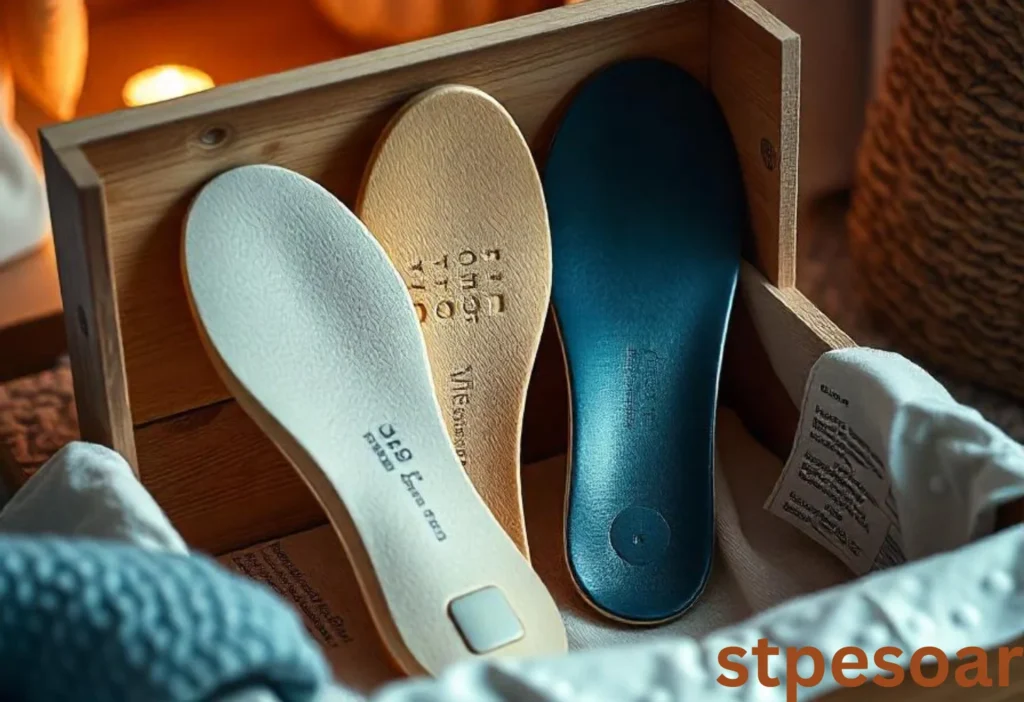Custom insoles may be a recreation-changer for all of us managing chronic foot aches, discomfort, or posture problems. The alternatives can be overwhelming when it involves determining which doctor to consult. In this manual, we’ll smash down which professionals offer custom insoles, why they’re powerful, and how to find the exceptional professional suited to your needs.
When looking for custom insoles, it’s essential to consult the right expert. For more about foot health and choosing the right specialist, visit the American Podiatric Medical Association (APMA) Website
What Are Custom Insoles?
Custom insoles, or orthotics, are specially designed shoe inserts tailored to an individual’s foot form, gait, and unique fitness wishes. Unlike over-the-counter insoles, custom versions are crafted to address precise foot situations, providing greater guidance, balance, and pain relief.

Which Doctors Can Make Custom Insoles?
When looking for custom insoles, it’s critical to consult the proper expert to ensure the most appropriate and effective answer.
- Podiatrists
- Role: Specialists in diagnosing and treating foot and ankle problems.
- Expertise: They are regularly the first choice for custom insoles as they can verify your foot biomechanics and identify any underlying health worries.
- Insole Types: Podiatrists provide custom insoles designed for diverse foot conditions, such as plantar fasciitis, bunions, and arthritis.
2. Orthopedic Surgeons
- Role: Focus on musculoskeletal problems, including foot, ankle, knee, and hip concerns.
- Expertise: Orthopedic surgeons can prescribe custom insoles as part of a broader remedy plan, mainly for patients with complicated structural issues.
- Insole Types: Their prescribed orthotics often cater to extreme or surgical instances, presenting relief from situations including fractures, sprains, and post-surgical procedure healing.
3. Physical Therapists
- Role: Specialize in rehabilitation and valuable movement.
- Expertise: While they do not usually make custom insoles simultaneously, bodily therapists work intently with podiatrists to signify insoles that enhance alignment and alleviate pain.
- Insole Types: They can also recommend custom insoles to correct posture and support healing from accidents.
4. Chiropractors
- Role: Focus on spinal alignment and average body stability.
- Expertise: Chiropractors frequently understand the effect of foot alignment on the backbone and body posture, making them knowledgeable about custom insoles.
- Insole Types: Custom insoles from chiropractors purpose to decorate stability and decrease aches associated with misalignment.
5. Orthotists
- Role: Specialists in orthotic gadgets for various frame parts.
- Expertise: Orthotists are trained to design and match custom insoles and other supportive gadgets, often participating with podiatrists and orthopedic surgeons.
- Insole Types: Orthotists’ insoles assist and alleviate signs and symptoms of particular foot deformities and muscle imbalances.

| Doctor Specialization | Expertise | Common Conditions Treated | Suitable Insole Types |
|---|---|---|---|
| Podiatrist | Foot and ankle issues | Plantar fasciitis, bunions | Orthopaedic insoles |
| Orthopedic Surgeon | Musculoskeletal structure | Fractures, post-surgery recovery | Post-operative orthotics |
| Physical Therapist | Rehabilitation and movement | Injury recovery, posture improvement | Functional insoles |
| Chiropractor | Spinal alignment | Balance and alignment issues | Posture-correcting insoles |
| Orthotist | Orthotic device creation | Foot deformities, muscle imbalance | Supportive custom insoles |
Why Choose Custom Insoles?
Custom insoles provide tailored assistance for numerous conditions, leading to better foot health and everyday physical consolation. Unlike popular insoles, those custom-designed options provide customized assistance primarily based on the following:
- Foot structure and form
- Walking or strolling patterns
- Specific medical situations
Key Benefits:
- Enhanced Support and Comfort: Custom insoles align with the exact shape of your feet.
- Pain Relief: They can alleviate pain in the toes, ankles, and knees and decrease pain in the lower back.
- Injury Prevention: Custom insoles help prevent injuries by improving balance and alignment.
- Improved Performance: Particularly useful for athletes or people on their feet for long periods.

The Process: How Custom Insoles Are Made
- Consultation: Initial evaluation through the medical doctor to talk about signs and foot fitness.
- Foot Analysis: The doctor will examine your foot biomechanics, gait, and strain factors.
- Casting: A mildew of your foot is taken to ensure it is super fit.
- Customization: The insoles are crafted based on the mildew and the use of substances suitable to your desires.
- Fitting and Adjustment: After the insoles are made, the doctor ensures they fit correctly and makes any vital changes.
Types of Foot Conditions That Benefit from Custom Insoles
Custom insoles are mainly effective for:
- Plantar Fasciitis: Provides arch assist and alleviates heel ache.
- Flat Feet: Improves foot alignment and helps correct posture.
- High Arches: Offers cushioning to lessen foot strain.
- Arthritis: Helps ease pressure and reduce joint aches.
- Diabetes-Related Foot Pain: Protects touchy areas and promotes circulation.

Cost and Insurance Coverage for Custom Insoles
The price of custom insoles can vary from $200 to $800, depending on the materials and complexity of the layout. While a few insurance plans cover a portion of the fee, testing with your company is crucial. Factors influencing price include:
- Doctor’s expertise
- Type of materials used
- Complexity of the design
- Insurance coverage
FAQs About Custom Insoles and Doctors
- What medical doctor can make custom insoles for plantar fasciitis?
- Answer: A podiatrist is frequently the go-to specialist for custom insoles for plantar fasciitis due to their expertise in foot-related conditions.
- Can bodily therapists suggest custom insoles?
- Answer: Yes, physical therapists can endorse custom insoles, even though they frequently work alongside podiatrists to ensure the best suit for rehabilitation purposes.
- Do orthopedic surgeons provide custom insoles after surgical operation?
- Answer: Yes, orthopedic surgeons often prescribe custom insoles as part of post-surgical healing to assist recuperation and decrease strain on affected regions.
- Are custom insoles worth the investment?
- Answer: This is particularly true for people with chronic aches or foot deformities, as they provide personalized assistance that trendy insoles lack.
- What is the expected lifespan of custom insoles?
- Answer: Custom insoles commonly last one to three years, depending on use and materials. Regular visits to your doctor can help determine whether a substitute is needed.
Conclusion
Finding the proper medical doctor to make custom insoles can significantly improve foot health and enhance usual consolation. Whether it’s a podiatrist, orthopedic health care professional, or orthotist, the right expert will assist in tailoring an insole method to address your particular desires. By choosing custom insoles, you spend money on personalized comfort, ache comfort, and lengthy-term foot health.

